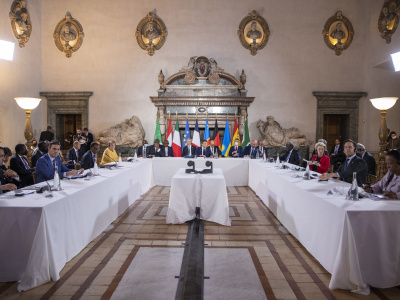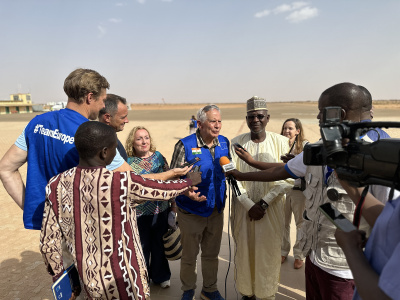
The Global Game Has Changed – What Role for Europe-Africa Relations?
Seven years after the long-term vision established in the Joint Africa-EU Strategy (JAES), the overall ambitious goal of implementing a partnership between equals and take the Africa-EU relationship to a new strategic political level remain largely unfulfilled. The need for a mindset and paradigm shift is, however, more relevant than ever, particularly taking into account considerable changes in both continents in the last few years, in terms of social, demographic, political and economic dynamics.
While ‘old Europe' keeps struggling with anaemic growth and high unemployment, Africa has become a pre-emerging continent. As Europe wrestles with self- doubts about its future and place as global actor and struggles to keep its contributions to international de- velopment, in Africa the expectations about the future are generally positive: high-growth rates, young popula- tions, diversification of development financial flows and partnerships, as well as a stronger internal vision about its plans and interests (e.g. Agenda 2063, PIDA continental infrastructure programme, CAADP agriculture and food strategy etc.). On the other hand, the challenges are also paramount: Africa continues to face major socio-economic and regional integration challenges; it is plagued by multidimensional poverty and recurrent crisis/fragilities, and therefore needs to actively build and consolidate its international partnerships to help implementing its transformation agenda, in an effective and sustainable way.
The 4th EU-Africa Summit was an opportunity, among others, for leaders of both sides to think strategically about their collective continental interests and values, in the framework of a long-shared, complex and varied relationship. The outputs reflect the underlying desire to proceed the relationship on basis of the reality, and the recognition of the need for a political and mental shift in the way the EU-Africa partnership is perceived. This does not mean that there are no disagreements, but each side is becoming clearer about what it wants. The evident shift towards a more economic focus – from aid to investment, from assistance to economic opportunities - is an example of this ongoing shift towards a win-win partnership that is based in a clear definition of interests.
One of the ongoing challenges is to overcome nega- tive perceptions on both sides (from Africa about the EU - “EU imposes agendas”, “EU double standards”, “EU patronizing attitude” – and from Europe regarding Afri- ca: “Africa does not implement”, “Africa is just interested in EU funds”). Contentious issues and contradictions need, therefore, to be tackled up vigorously and with open discussions - bearing in mind the broader context of wide opportunities and existing potential for increased cooperation in numerous areas. Managing expectations and diversity of objectives will certainly remain a delicate balancing act.
This publication approaches some of the issues involved in the reshaping of EU-Africa relations in the recent past and for the next few years. Several authors, from Europe and from Africa, assess the partnership’s achieve- ments so far and also the upcoming challenges in accom- modating diverging interests and effectively responding to global challenges, so as to generate the famous win-win outcomes all partners are looking for.
--
Photo courtesy of Glyn Lowe




